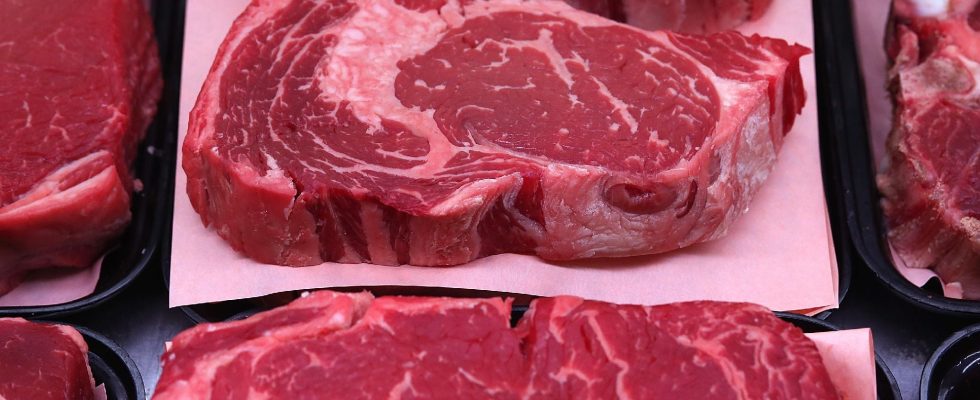How can we have a real impact on our environment? According to a study by the Action Climat network and the French Nutrition Society published Tuesday February 20, reducing current meat consumption in France by half, to a maximum of 450 grams per week, would make it possible to achieve the climate objectives set for the country. .
Food represents 22% of France’s carbon footprint, and “60% of these emissions come from the production, at the agricultural level, of the food we consume”, recalls the study.
She emphasizes that in France, “after two decades of decline between 1990 and 2012, meat consumption per capita has shown a slight increase over the past ten years” and that “the quantity of meat consumed per capita in France is today two times higher than the world average. “Chicken consumption per capita in France has in fact more than doubled between 2000 and 2022,” highlights the study.
No problem for nutritional adequacy
The Action Climat network, which brings together around thirty associations, and the French Nutrition Society (SFN), which describes itself as a “learned society” bringing together experts from the public and private sectors, have carried out “diet modeling work sustainable” with the MS Nutrition design office.
“The results show that it is possible to reduce meat consumption by 50% while satisfying nutritional adequacy and without having to resort to enriched products or supplements”, a division by two which “would lead to a reduction in the carbon impact of food between -20% and -50% depending on the type of associated dietary changes”, it is indicated.
The study takes as a reference the commitments made by France as part of its 2nd Low Carbon Strategy, which aims in particular to reduce greenhouse gases in its agricultural sector by 46% by 2050.
The diets suggested by the study include “more fruits and vegetables, legumes, nuts and whole grain products than today, with a moderate consumption of eggs and dairy products, and a sharp reduction in fatty, sweet and/or salty products.
The Climate Action network and the SFN insist on “the need” for the government to “take into account environmental issues” in its dietary recommendations from the National Nutrition and Health Program (PNNS), thus recommending “not to consume more than 450 grams of meat per week”, all meats and cold cuts combined.
